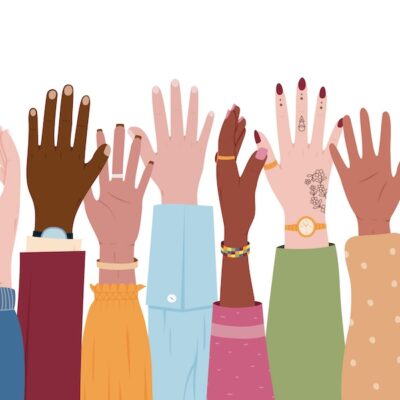Fostering a culture of belonging Post-Covid
Encouraging employee belonging is vital for dealing with the fallout from Covid-19. Zoe Brownlie shares a six-step plan for developing a culture of belonging in your business.
Encouraging employee belonging is a key strategy for dealing with the fallout from Covid-19. Belong founder Zoe Brownlie offers a six-step plan for developing a culture of belonging in your business.
Belonging is a human need, just like food and shelter, we need to feel part of something bigger. Our communities thrive when we feel connected, accepted for who we are and supported by those around us. And it’s the same when we’re at work.
Feeling a sense of belonging while working is extremely important for everyone, especially as we pick up the pieces in the aftermath of Covid-19. Even the most resilient people will be affected in some way, and providing a culture of belonging in these uncertain times is not a ‘nice to have’, but a critical part of business success.
Prioritising your people is both the right thing to do and good for business. Research shows that organisations who foster a culture of belonging have people who are more productive and innovative, take less sick days, stay longer, and promote their organisation as a great place to work.
Just to make it really clear; diversity is all about making sure you have a diverse workforce, so you benefit from the different experiences and knowledge people bring to your business. Inclusion is about creating fairness, and putting in fair practice for everyone in your organisation. And belonging is about acknowledging, welcoming, and celebrating who we all are.
I like to think of it as: ‘diversity is being invited to the party, inclusion is being asked to dance, and belonging is organising and hosting the party together’.
Most organisations are starting to understand the importance of diversity and inclusion, and some are working in this space successfully. But even those who understand and are working on diversity and inclusion are still struggling to be truly inclusive. Just look at the governance of organisations in New Zealand – most haven’t started to tackle belonging yet.
International research shows that 40 percent of people feel isolated at work[1], and this statistic will now be higher due to COVID-19. So belonging is a critical area for businesses to be working on now.
In New Zealand, we are only just starting to see the impact that COVID-19 has had on our people. Mental distress is increasing, and we will see more cases of severe mental illness and suicide as time passes. As employees, we can have a part to play in getting people through this. Even those who aren’t hugely affected will be feeling unsettled and isolated, and a culture of inclusion and belonging is what everyone needs.
There are some organisations doing great things to create a culture of belonging for their people. Xero use agile and design thinking approaches for all initiatives, and invite all their people to participate at every stage. Chorus have a ‘Belonging Committee’, along with eight diversity committees, and use a design thinking approach to determine how they support their people. Vodafone have a range of employee networks which focus on creating connections and working together. They have also recently created the role of Pou Whakawhanake Māori, focussing on partnerships in the Māori community, and collaborating to strengthen capability and belonging. And The Auckland District Health Board co-created ‘To Thrive’, a programme supporting lower paid workers to connect and fulfill their personal and professional goals, with excellent outcomes, which is now being picked up by other health boards around the country. And some smaller organisations, like Frank Advice, are fostering a culture of belonging right from the beginning.
All businesses are different, and all are able to commit different amounts of resource to developing their culture. But there are things that all businesses can and should be doing, both for their people and for their business.
- Ask your people.
A regular engagement survey asking about their sense of belonging is a good way to start. Every 3 or 6 months works well. Make the survey as easy as possible for people to fill out honestly.
Depending on your size, it can be something you chat about regularly in whole team meetings, and in 1:1s. Or managers can take this responsibility in larger organisations.
A key to this is being transparent about the findings with your people, and actioning areas that need addressing.
- Include ‘belonging’ as one of your organisation’s values.
This makes it really obvious to all your people that it matters. It also makes it easy to educate about and refer to, both for celebrating but also for dealing with inappropriate behaviour.
- Use co-design methodology.
When people have a voice when creating anything new, levels of belonging soar. Use co-design when implementing or updating projects. It takes a little longer, but has huge benefits in the long run.
- Implement a buddy system.
You can do this in a way that suits your business, but one of the objectives must be to have people checking in on other peoples’ wellbeing. The less the people know each other the better. It can also be a great tool for education, collaboration, developing empathy, and for reciprocal mentoring.
- Bring your whole self to work.
If your people see you as a whole person then they are much more likely to feel comfortable about bringing their whole selves to work too. Make it obvious that you have a life outside of work and that there are things that you really value.
Share with them what impact COVID-19 has had on your life and encourage them to do the same.
- Celebrate difference.
Create a space where people can share stories about life outside of work. Slack or Microsoft Teams is good for this, and/or time at the beginning of meetings or morning teas.
This not only fosters belonging, but also builds relationships, wellbeing, and knowledge, and is key as we work through the impacts of this pandemic.
Employee belonging isn’t a nice to have, it is what will get businesses through the impact that COVID-19 has had on all of us. So make sure people are prioritised just as much as profit, as they will bring and retain the profit. But profit alone won’t bring and retain the people.
Belong offers a membership programme and consultancy services, both for organisations and individuals, where people can collectively learn, share best practice, access workshops and events, and advocate for a sense of wellbeing and belonging at work. Head to www.belongglobal.com to find out more or get in touch with Zoe at [email protected].
Pictured: Zoe Brownlie
[1] https://hbr.org/2019/12/the-value-of-belonging-at-work. Read the full research report from BetterUp here https://get.betterup.co/rs/600-WTC-654/images/BetterUp_BelongingReport_091019.pdf






